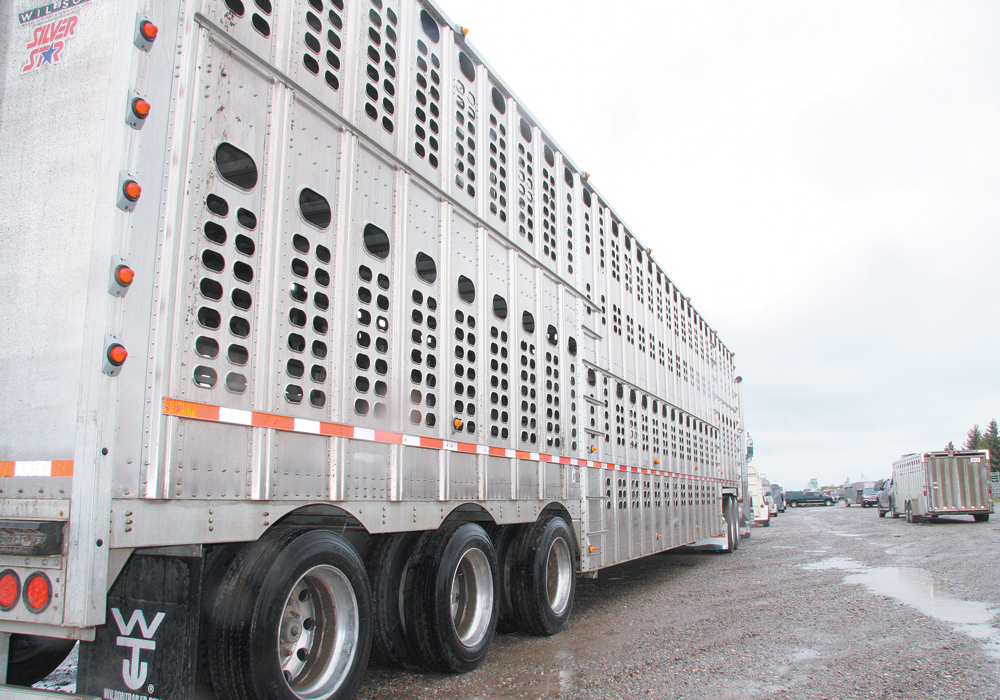A food safety or animal welfare problem can happen to anyone, but knowing what to do about it can make all the difference
GATINEAU, Que. — A third item can be added to the list of things that are inevitable. Besides death and taxes, farmers can be sure that at some point, things will go wrong.
When they do, said issues management expert Geraldine Auston, “it’s what you do about it when things go wrong that matters.”
Auston, president of Ag & Food Exchange Ltd., has worked with food industry clients in sectors ranging from cranberries to hogs. A food safety or animal welfare issue can devastate the farmer or the farm sector.
Read Also

Farming Smarter receives financial boost from Alberta government for potato research
Farming Smarter near Lethbridge got a boost to its research equipment, thanks to the Alberta government’s increase in funding for research associations.
“Just one single incident has the potential to impact many others within a single sector and indeed across the whole spectrum of animal use in this country,” she said at the Nov. 27 National Farmed Animal Health and Welfare Council.
By following codes of practice, livestock transport standards and various industry-specific programs, farmers and others involved in animal production can demonstrate that standards exist and that they are doing things right.
It helps, but it may not be enough, said Auston. People who work with livestock every day are highly knowledgeable but may become desensitized to the issues that resonate with a less-knowledgeable public.
To them, “bacon is bacon, chicken is chicken, steak is steak. Sad fact. And a farmer’s a farmer. We underestimate how little people really know about the animal-use sector in this country and around the world.”
Combined with public willingness to accept bad news over good, it’s a powerful incentive to think about issues management.
It should begin with people, said Auston.
“You’re only as good as your worst farmer. You’re only as good as your worst employee. That’s your bar. So when you’re dealing with people that are dealing with animals, you’ve got to have the best. You really do.
“While not everything is considered highly skilled work, anyone that works with animals needs to understand the importance of their job. They’re dealing with something living. … They’re integral to everything you do because you’re only as good as the one guy that turned up on the video on W5.”
When hiring, ask a lot of questions, Auston advised. Require a resume from applicants and check references. Enact a meaningful probationary period. Anyone not comfortable working with animals should either not be hired or put to work in some other capacity.
Once hired, employees should be trained and then periodically retrained to ensure they know the procedures and the expectations. Training should be documented and require sign-off by the person taking it.
Employees should be told to report any welfare concerns without fear of criticism, said Auston. The concern may be legitimate or it may be a case of unfamiliarity with needed practices. Either way, it can be addressed before it goes further.
“Dealing with live things, just like you would with people, is a huge responsibility, and the more you revisit this with people that work with you, the more they get how serious it is for you,” she said. “If it matters to you, it will matter to them.”
Even with all the groundwork, a crisis can occur with potential to harm the operation, the brand and even the industry.
When it does, said Auston, be honest, own the issue and be the first place people go to get accurate information.
She quoted Winston Churchill as a warning: “A lie gets halfway around the world before the truth has a chance to get its pants on,” she quoted, adding “and in England, pants are not trousers. It’s the first thing you’re doing.”
Auston also cautioned those at the heart of an issue to avoid black humour. Though it may be a way to diffuse tension, it has no place in public explanations.
“Treat sensitive subjects with sensitivity. Showing you care is critical.”
Her check list of advice in managing issues includes:
- Do the right thing always.
- Have rigorous hiring practices.
- Train, retrain, repeat.
- Have and enforce animal welfare agreements.
- Have and enforce probationary periods.
- Have a plan.
When things go wrong:
- Be sincere.
- Be experts.
- Treat it sensitively.
- “Remember that really bad worker in the corner. That’s your bar.”


















